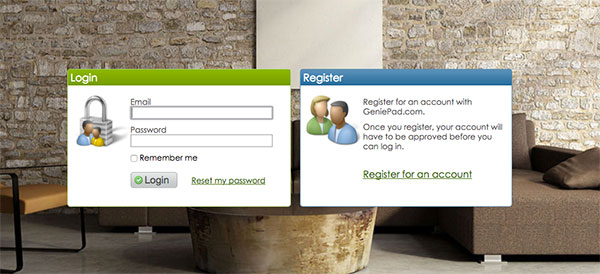"We are trying to develop a website for our condominium, but, we don’t know where to start. Can you help?"

This is a question I have been asked numerous times by condominium board members. Regardless of whether the condominium is located in Vancouver or Miami, if it’s 40 units or 400 units, it is a question that many condominium boards struggle with frequently.
This is a show stopper that keeps condominium boards from moving forward.
This is also preventing your condo board from developing a website as well. You are not a web designer, web master, “computer guru”, or programmer, and it’s very likely your board members aren’t either.
The most common problem is that board members, or committees, don’t even know what to include in their website. How would they? This is not their daily job.
Another problem that’s quite common today, is simple static websites. Websites with static pages that owners or tenants have to visit every day to see if there are any new updates or new information posted. Pages that aren’t updated regularly.
Many condominium boards create these static websites. Everyone gets excited, everyone checks out the website every day. Then a month or two passes, and nobody visits the website anymore. The excitement is gone. Everyone feels they failed, but they don’t know why.
Today, people don’t have the time to visit every website on their list every single day just to see what is new. People want information delivered to them in the quickest and easiest way possible.
Think about this:
Would you be willing to drive to a newspapers office every day to pick up a newspaper or magazine? Probably not. Over time you would forget about it.
But the bigger questions is this:
If the magazine didn’t cover topics or events that interest you, would you even read this magazine? Likely not and this is what we’ll address today.
How can a board create an effective website for our condominium that our owners and tenants will use on a regular basis?
We will not be discussing the technology used in developing a website. We will discuss the information and features you need to include in your website so you receive the biggest return on your investment and keep your owners and tenants coming back. After all, you will be investing time, or money, or both.
So where is the best place to find this information? Find the right data to review!
Here at CondoGenie (formerly GeniePad) we have created hundreds of websites for condominiums across Canada and the United States. For condominiums and associations ranging from 16 to more than 1000 units.
What does your condo, HOA, or strata website need so it's a good investment?

- On average 26.9% of boards and owners use a website as an easier and quicker way to communicate with the board and manager.
- 21.9% use the website to access important documents such as bylaws, minutes, policies, forms, etc.
- 15.1% use a website to communicate with other owners within their condominium.
- 13.3% use the website to post and distribute news announcements.
- 10.5% use the website to view availability and book amenities.
- 6.3% use the website to track tasks and work requests.
- 4.1% use the website to post classifieds of items for sale.
- Finally, 2.1% use the website to generate various reports.
So what are the benefits of having these features?
News
(Condo Newsletters, Announcements)
- Help to inform your owners & residents of the latest news, announcements, and events INSTANTLY!
- Save the board and property manager time, and reduce the number of phone calls, e-mails, and inquiries.
Documents
(Minutes, Bylaws, Policies, Forms, etc.)
- Provide owners, residents, boards, and property managers with quick and easy access to important documents.
- Help to store all your important documents in one place so you’ll never lose a document.
Messages & Contact
(Contacting the board/council/manager)
- Provide an easy way to contact the board or property manager. Track all messages, comments, and their status.
- Never lose a message or letter again!
Task and Issue Tracking
(Track tasks and work requests)
- Helps to keep track of all the work, tasks, and issues that have to be completed efficiently.
- Eliminates the pesky sticky notes and keeps everyone informed of the progress.
Message Forum & Classifieds
(Community communication)
- Helps to build a stronger community by giving your owners and residents a way to communicate and help each other
- Increases owner feedback before a board meeting or AGM!
Amenities & Bookings
(Book common amenities)
- Helps your owners or tenants view availability and information for each amenity and allows them to book the amenity on their own.
- Reduce the amount of time it takes you to schedule, confirm, and track amenity bookings.
Reports
- Helps the board manager generate minutes, task & issue reports, a list of up to date contact information.
Now we have a bit of data to see what owners really need in a website. This is a great start of what you should include in your condominium’s website.
Before you start screaming “Eureka”, there is one more problem to solve. You need to keep your owners and tenants involved and engaged in your website. You need to make sure they come back.
The solution is quite simple. Make sure that when new information is posted on your website everyone is notified of this update as soon as possible. The simplest way to accomplish this is by sending an update via e-mail.
If you develop this feature into your website, or use a platform with this feature built-in, you won’t have to worry about any of this. As soon as you upload a new document, or post a news announcement, your website will send an e-mail notification to your owners and tenants for you automatically. This sounds easy, right?
We have covered a bit of information today. At this point you may be thinking…
“This sounds like a lot of work and time that I just don’t have!”
If you create an effective website for your condominium, your owners and tenants will have important information at their fingertips, therefore the amount of time you will have to invest as a board member, or property manager, will reduce over time. Why? Because owners and tenants will be able to get answers on their own without taking up your time.
Ask yourself: “Is it worth it to invest a small amount of time today, to save countless hours in the future?”

